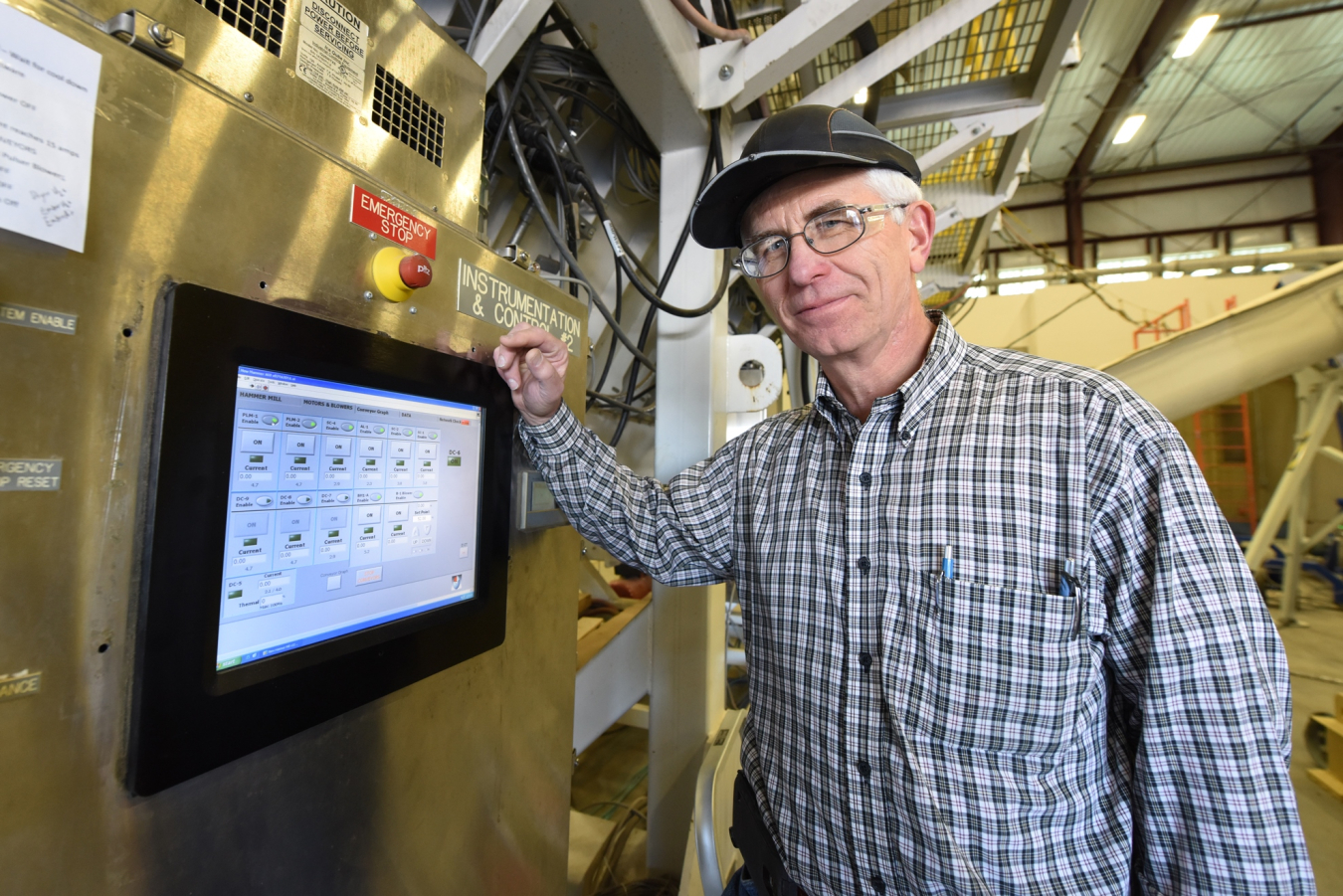Researchers have successfully tested an intelligence-based control system that increased the reliability of feedstock preprocessing equipment.
August 24, 2017
Idaho National Laboratory’s Process Development Unit (PDU) housed within the Biomass Feedstock National User Facility. Photo Courtesy | Idaho National Laboratory
Researchers at Idaho National Laboratory’s (INL’s) bioenergy program have successfully tested an adaptive, intelligence-based control system that increased the reliability of feedstock preprocessing equipment by more than 50%. Before feedstocks can be converted into fuels and products, they undergo various types of preprocessing to meet quality specifications required for conversion processes. Preprocessing may include techniques such as milling, densification, or pelletizing to ensure the feedstock is a uniform format and ready for conversion. There is a huge spectrum of variability in biomass that arises from differences in genetics, relative crop maturity, agronomic practices and harvest methods, soil type, geographic location, and climatic patterns and events. This variability—some of which is avoidable and some of which is not—presents significant cost and performance risks for bioenergy systems.
INL’s control system, developed at the Biomass Feedstock National User Facility’s Process Development Unit (PDU), will use biomass sensors, process models, and artificial intelligence to automatically adjust PDU equipment to compensate for moisture and other types of biomass variability—enabling more efficient and reliable processing of biomass feedstocks. The control system’s precision will allow for real-time adjustments of processing equipment in response to inputs from sensors that detect changing biomass characteristics. Researchers anticipate the control system will improve reliability and feedstock consistency compared with human operators alone.
Biorefineries currently rely on human operators to adjust biomass preprocessing equipment. Human operators often perform well for plants that process gases, liquids, or refined solids, but biomass variability poses unique operational challenges for plants that process cellulosic biomass. Pioneering commercial-scale cellulosic ethanol refineries have faced these challenges during start-up, resulting in utilization rates that averaged 7% in 2016.
INL staff collaborated with graduate students from Virginia Commonwealth University for a preliminary test of their control system. The students developed a model based on moisture content and feed rates using data from previous PDU operations. The model provides estimates of performance for throughput -- how much material is processed per hour, and reliability -- how often the system is shut down.
During the preliminary test, researchers included a “human-in-the-loop” to adjust material feed rates. In the artificial intelligence world, “human-in-the-loop” refers to a process that is largely machine run, but still has partial human input. The process is not fully automated and still receives some inputs from a person controlling the process or machinery—in this case, the PDU. Combining automatic sensing and the ability to make manual adjustments creates a much more efficient process. The system maintained 97% reliability at 90% capability during this run. This is potentially big news for biorefineries, which rarely exceed 20% operating capacity during start-up.
Feedstock preprocessing is a key first step in the biomass-to-bioenergy supply chain, so reliably preprocessing feedstocks will result in more efficient biomass conversion, distribution, and end use down the line. Optimizing how feedstocks are preprocessed, and decreasing the cost to do so, is a key step in reducing the overall cost of biofuels and helping the Bioenergy Technologies Office (BETO) meet its strategic target of $3/gallon gasoline equivalent. Learn more about BETO’s Feedstocks Supply and Logistics portfolio.

